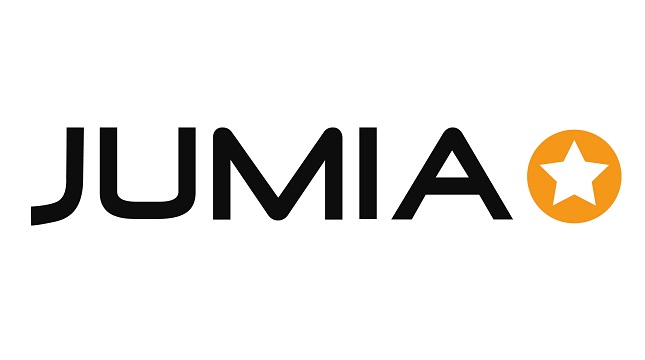E-Business
Confronting the Google Monolith: Survival Strategies for Online Businesses

By Reuben Kalu.
In the vast expanse of the digital realm, Google looms large, an omnipresent force shaping the way we navigate, search, and conduct business online.

From its humble beginnings as a search engine to its current status as a multifaceted tech behemoth, Google has entrenched itself deeply into the fabric of the internet.
Its influence is undeniable, its reach unparalleled, and its ubiquity seemingly inescapable. But can you truly run an online business without Google?
The answer, in today’s digital landscape, is a resounding no. You have no choice.
Google’s dominance extends across multiple facets of the online world, making it virtually impossible for businesses to thrive without engaging with its ecosystem.
From search engine optimization (SEO) to online advertising, email services to analytics, Google’s suite of products and services permeates every aspect of the online business landscape.
Attempting to operate without Google is akin to swimming against a relentless tide, fighting an uphill battle fraught with obstacles and limitations.
At the heart of Google’s influence lies its search engine, the gateway through which billions of internet users navigate the vast expanse of online content. .
Google’s search algorithms wield immense power, determining which websites rank prominently in search results and which languish in obscurity.
For businesses seeking to attract organic traffic and expand their online presence, optimizing for Google’s search algorithms is not merely advisable—it’s imperative.
But Google’s influence extends far beyond search. Consider Google Ads, the company’s advertising platform that enables businesses to reach targeted audiences through paid search, display, and video advertising.
With billions of searches conducted on Google each day, Google Ads provides unparalleled reach and visibility, allowing businesses to target potential customers with pinpoint accuracy.
Attempting to compete in the online advertising arena without leveraging Google Ads is akin to entering a battle unarmed—a futile endeavor destined for failure.
Moreover, Google’s suite of productivity tools, including Gmail, Google Drive, and Google Workspace, has become indispensable for businesses seeking to streamline their operations and enhance collaboration.
With seamless integration across devices and platforms, Google’s productivity tools offer unparalleled convenience and efficiency, empowering businesses to work smarter, not harder.
Attempting to eschew Google’s productivity suite in favor of alternative solutions is not only impractical but also unwise, depriving businesses of the tools they need to succeed in today’s fast-paced digital landscape.
Furthermore, Google Analytics stands as the gold standard for web analytics, providing businesses with invaluable insights into their online performance and audience behavior.
From tracking website traffic and user engagement to analyzing conversion metrics and customer demographics, Google Analytics offers a comprehensive toolkit for optimizing online marketing strategies and driving business growth.
Attempting to gauge online performance without leveraging Google Analytics is akin to flying blind, devoid of the critical data needed to make informed decisions and drive meaningful results.
But perhaps the most formidable aspect of Google’s influence lies in its role as a gatekeeper of information and access.
With billions of users relying on Google’s platforms and services each day, the company wields immense control over the flow of online traffic and the dissemination of information.
For businesses seeking to connect with customers and expand their reach, Google’s dominance presents both a tremendous opportunity and a formidable challenge.
Attempting to circumvent Google’s influence and establish an online presence independent of its ecosystem is a Herculean task, fraught with uncertainty and risk.
In essence, attempting to run an online business without engaging with Google is akin to swimming against a relentless tide, fighting an uphill battle fraught with obstacles and limitations.
While alternative platforms and solutions exist, none possess the ubiquity, reach, and influence of Google’s ecosystem.
To thrive in today’s digital landscape, businesses must embrace Google’s dominance and leverage its suite of products and services to their advantage. You have no choice.
In conclusion, Google’s pervasive influence permeates every aspect of the online business landscape, making it virtually impossible to escape its grasp.
From search engine optimization to online advertising, productivity tools to web analytics, Google’s ecosystem encompasses a vast array of products and services that have become indispensable for businesses seeking to succeed in the digital age.
While alternative solutions may exist, none possess the ubiquity, reach, and influence of Google’s ecosystem.
To thrive in today’s digital landscape, businesses must embrace Google’s dominance and leverage its suite of products and services to their advantage.
You have no choice.
E-Business
Jumia Tech Week 2026 Begins with Tech Deals on Smartphones, Electronics, and Everyday Technology

Jumia Nigeria has announced the launch of Jumia Tech Week 2026, a two-week campaign offering customers access to discounted technology products across key categories, including smartphones, computing, home entertainment, and wearable devices.

Starting from March 2 to March 15, Jumia Nigeria’s Tech Week 2026 is themed ‘Tech Products for Less’ – a deliberate commitment by the e-commerce giant to drive down the cost of technology products for Nigerian consumers. The campaign offers significant price reductions across key product categories, enabling more Nigerians to access the devices they need at prices that reflect the company’s dedication to affordability and consumer value.
Jumia Tech Week will feature deals across a wide range of product categories, including mobile phones, computer systems and accessories, televisions and audio equipment, gaming products, home appliances, portable power solutions, health technology,, and wearable devices.
Customers will also have access to curated recommendations, including top smartphone deals, must-have accessories, gaming essentials, and home technology upgrades.
According to Temidayo Ojo, CEO of Jumia Nigeria, the campaign reflects Jumia’s broader commitment to making everyday technology more accessible to Nigerians.
“Technology has become an essential part of everyday life, and access to the right devices enables more people to participate fully in the digital economy,” said Ojo. “At Jumia, we remain focused on expanding access and improving the shopping experience as we continue to build Nigeria’s everyday retail destination.”
The campaign will include a range of customer engagement initiatives such as flash sales, brand days, anchor deals and interactive activities designed to enhance the online shopping experience.
Special highlight periods, described as Explosion Days, will take place on March 6 and March 13, featuring limited-time offers across selected technology categories. Customers will also be able to participate in interactive activities, including product-based games, treasure hunts,, and live shopping sessions during the campaign period.
The campaign will feature participation from leading brands including Oraimo, Silver Crest, Samsung, Ecoflow, Nivea and Aeon, offering customers a wide selection of technology, household and lifestyle products. Early access promotions already begun during the teaser period from February 16 to March 1, allowing customers to preview selected deals ahead of the official launch.
Jumia Tech Week forms part of the company’s broader strategy to expand e-commerce adoption by improving access to essential products and enhancing the customer experience across its platform. As Nigeria’s e-commerce market continues to grow, Jumia remains focused on strengthening its product assortment, logistics capabilities, and digital experience to serve customers better nationwide.
Customers can participate in the campaign by using the Jumia mobile app or visiting the Jumia website and following the conversation online using #JumiaTechWeek.
E-Business
House Queries NDIC: ₦5m Max Payout for Failed Bank Depositors

Nigeria Deposit Insurance Corporation (NDIC) pays between ₦2 million and ₦5 million as deposit insurance to customers of liquidated banks, Managing Director Thompson Oludare Sunday told the House Committee on Insurance and Actuarial Matters during 2026 budget defence.

NDIC
House Spokesperson Akin Rotimi Jr sought details on depositor entitlements, citing Heritage Bank’s June 2024 collapse and public concerns over financial confidence.
Sunday explained NDIC’s mandate: banks pay risk-based premiums (now under 1%, down from 15/16 of 1%) to guarantee deposits. Coverage is ₦5 million for deposit money banks, primary mortgage banks (PMBs), and microfinance banks (MMOs); ₦2 million for other financial institutions.
Using BVN, NDIC auto-pays guaranteed sums without visits for amounts up to the limit. For Heritage, post-revocation, NDIC liquidated assets—selling buildings, recovering loans, realizing investments—and paid a second ₦24.63 billion dividend on January 6.
“Anything above ₦5 million or ₦2 million depends on recoveries,” Sunday said, noting ongoing asset sales and debt chases.
Committee Chairman Ahmed Jaha Babawo commended the clarity, noting the limit rose from ₦500,000 to ₦5 million recently. Over 90% of Heritage depositors got insured sums in under four days, meeting International Resolution Deposit (IRD) standards.
Babawo added liquidation dividends would be discussed in executive session.
E-Business
Kaspersky Discovers New Phishing Campaign Exploiting Google Tasks Notifications to Steal Corporate Credentials

Kaspersky has uncovered a new phishing scheme that abuses legitimate Google Tasks notifications to trick corporate users into revealing corporate login credentials.

By leveraging Google’s trusted @google.com email domain and notification system, attackers bypass traditional email security filters and exploit users’ trust in familiar services.
In this campaign, victims receive an authentic-looking notification from Google Tasks with the subject line “You have a new task.” The message creates the illusion that the recipient’s company has adopted Google’s task management tool, pressuring them to act quickly. The notification often includes elements of urgency, such as a high-priority flag and a tight deadline, to prompt the victim’s immediate response.
Upon clicking the embedded link, users are directed to a fraudulent form disguised as an “employee verification” page, where they are asked to enter their corporate credentials under the pretense of confirming their status. These stolen credentials can then be used for unauthorised access to company systems, data theft, or further attacks.
“Google’s vast ecosystem of services gets exploited by scammers. The scheme with Google Tasks is part of a broader trend observed before and continuing into 2026, where cybercriminals misuse legitimate platforms to distribute scams and phishing.
Notifications originating from legitimate domains naturally evade many spam and phishing filters, while the social engineering aspect – making it seem like an internal company process – lowers the victim’s guard,” comments Roman Dedenok, Anti-Spam Expert at Kaspersky.

 E-Financial1 day ago
E-Financial1 day agoIran-Israel-US Conflict and CBN’s FX Gains: A Stress Test for Nigeria’s Monetary Stability

 E-Financial1 day ago
E-Financial1 day agoMutual Benefits Assurance Reaffirms Full Regulatory Compliance, Enhanced Governance

 General News1 day ago
General News1 day agoJAMB Uncovers AI-Driven Fraud Targeting UTME Candidates, Warns Parents

 General News1 day ago
General News1 day agoSERAP Asks FCCPC to Investigate Google, Meta, Others over Alleged Rights Abuses

 News1 day ago
News1 day agoFlashChange CEO, Bidemi Oke, Urges Startups to Build Strong Governance Structures Early

 News1 day ago
News1 day agoTeamApt, Awabah Partner to Boost Pension Drive for Nigerians

 General News1 day ago
General News1 day agoCapelli Institute Commits to Advancing Trichology in Nigeria

 E-Financial1 day ago
E-Financial1 day agoReps Mull Commission to Regulate Fintech Operations

























